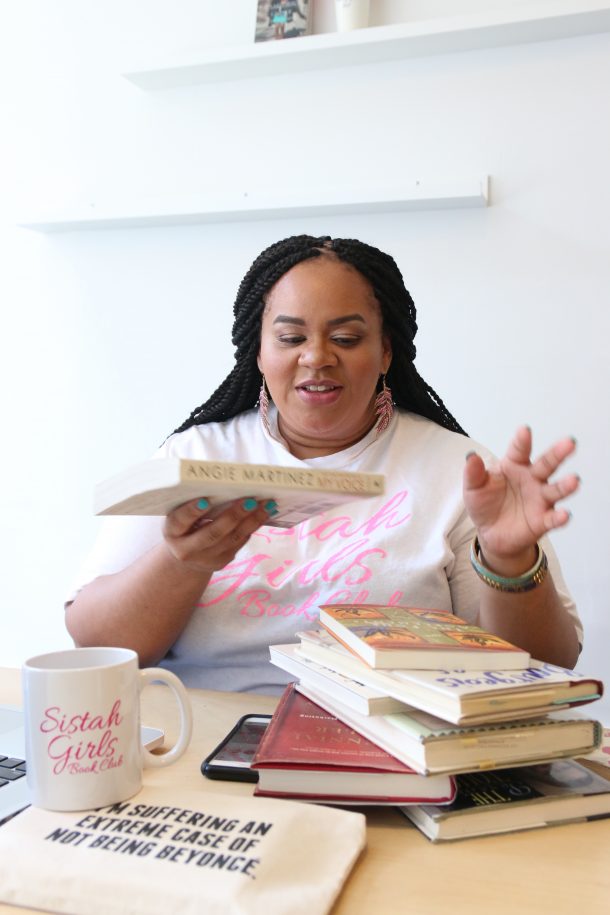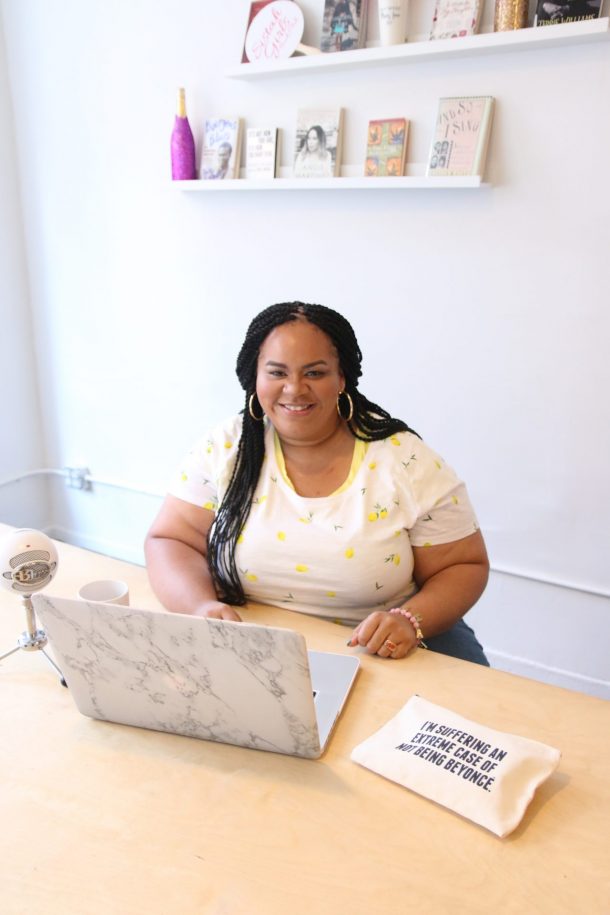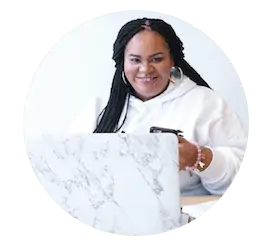An Interview With Christina Milliner
Fiction is one of my least favorite genres to read. Growing up, I just couldn’t get into it. I wanted to read self-help books and memoirs–topics centered on real-life people and situations.
I couldn’t connect with the genre and skimmed to finish the stories. And then I read Meet Clay Brown, by Christina Milliner and I devoured the book. Meet Clay Brown is about a young girl born with HIV (Human Immunodeficiency Virus) who struggled with self-acceptance.
The story was refreshing, it’s centered on real-life issues, and the characters are relatable and vulnerable. I’m a Brooklyn native and the author’s vivid imagery put me right in the middle of the borough I call home.
Hailing from Queens, N.Y., author Christina Milliner holds an MFA in Writing from Lindenwood University and a BA in English Literature from the University of North Carolina-Charlotte.
Brown works in social services advocating for the formerly homeless population. In her spare time, she enjoys finding little cafes and admiring street art around Brooklyn. Meet Clay Brown is Milliner’s first novel.
I caught up with Milliner to talk about her debut novel and her career as a writer and advocate. Check out the interview below…
The interview has been edited and condensed for clarity.
SGBC: When did you discover your passion for writing?
Christina Milliner: In high school, I believe it was 9th or 10th grade when I started writing poetry. I spent my high school years writing a few poems.
I remember some of the first poems I wrote: “Violence is Everywhere,” “Music,” and “Pick Pocket.” My English teacher Mr. Taylor helped me with those poems. In college, I did a little journalism and wrote short stories; I would then circulate around campus and to family and friends.
SGBC: I loved reading Meet Clay Brown, the characters were very relatable. This made it an easy read. What inspired you to write about a young girl who was born with HIV?
Christina Milliner: Thank you. I’m so happy you enjoyed the story. My Uncle James was my inspiration for Clay. He died young from AIDS during the epidemic in the 1980s.
I was very young when he died so I remember little about him and knew nothing about HIV and AIDS. It wasn’t until I became older that I wanted to learn about this virus that took my uncle away.
SGBC: In the story, friendship and community are highlighted, why was it important for you to include those themes?
Christina Milliner: It’s important because I wanted to show through friendships you can find a family and unconditional love. Like Clay, some people come from broken homes with relatives that may feel like strangers.
And so they may have that desire for a family relationship and the closeness it represents, which they find through their friends. I wanted to highlight community because our community plays a big role in our lives. Our environment can influence our lives if we allow it.
With Clay, I wanted to show how even though she didn’t come from the best environment she didn’t allow it to define her identity.
SGBC: Because this book dealt with a heavy topic, how did you decompress after each writing session?
Christina Milliner: Honestly, I didn’t really have any time to decompress. At the time, my lifestyle was pretty busy, I started this novel in undergrad, then went to graduate school, and was working multiple jobs.
I never could take time for myself after a session. I was on the move! I’ve slowed down some now and I’m working on finding the time to take a moment.
SGBC: Now that the Black community is aware of HIV and AIDS, do you think we are as vigilant with spreading awareness as we once were?
Christina Milliner: I think we can do more to spread awareness. From my experience, I notice there is still this taboo in the Black community with the virus. People either want to keep it a hushed topic or appear very ignorant about it.
I come across the attitude that “it can’t happen to me” a lot. So, they continue to indulge in risky behavior and don’t get tested regularly.
Even though we have progressed significantly with the virus, in the Black community we are still highly affected which contributes to factors like healthcare, mental health, and substance abuse. These are all issues I highlight in Clay Brown from experience in my field of work.
I’m still learning every day about HIV/AIDS and will keep sharing what I learn with others.
SGBC: What is the most surprising thing you’ve learned while creating Meet Clay Brown?
Christina Milliner: As a creative, it’s alright to be vulnerable in your work. To be comfortable with the uncomfortable. Writing a novel really helped me understand this.
SCBC: After reading your book, what do you hope readers walk away with?
Christina Milliner: I hope readers walk away knowing that no matter what you are going through in life, there is a light at the end of the tunnel. You just have to be open to receiving it.
SGBC: What do you like to do when you are not writing?
Christina Milliner: Traveling and running (my goal is to run the 2024 NYC Marathon).
SGBC: What Black authors were influential in your work? And how did they impact the way you tell stories today?
Christina Milliner: Growing up I read authors Sister Souljah and Omar Tyree. As I got older, I started to really read more of Toni Morrison and Maya Angelou’s works.
Now I’m reading authors Tiffany Jackson, Candice Carty-Williams, Tomi Adeyemi, and Zakiya Dalila Harris (I know I just named a handful lol). But honestly, Sister Souljah has been the most influential in my work. Her storytelling is real and raw.
She tells stories that the Black community can relate to. That’s something I always admired when I read her work. I aim to write real, raw, and relatable stories.
SGBC: What advice would you give to a writer working on their first book?
Christina Milliner: Don’t think too much into it. If you have a story you want to tell, then tell it.
Remember, a draft will not be perfect. It will be all over the place and may not even make sense. But it’s the foundation. Once you have all the words out, then you can focus on revision.
Also, join writing/critique groups because it helps to be a part of a community that can give you helpful feedback and nurtures your writing. And invest in a good editor, I feel it’s a must for every serious writer.
Be sure to follow Christina on Instagram and Facebook, she is currently writing the second book to MEET CLAY BROWN.
Bonus:
Here is a sample of Miller’s poem from High School called “Music”






